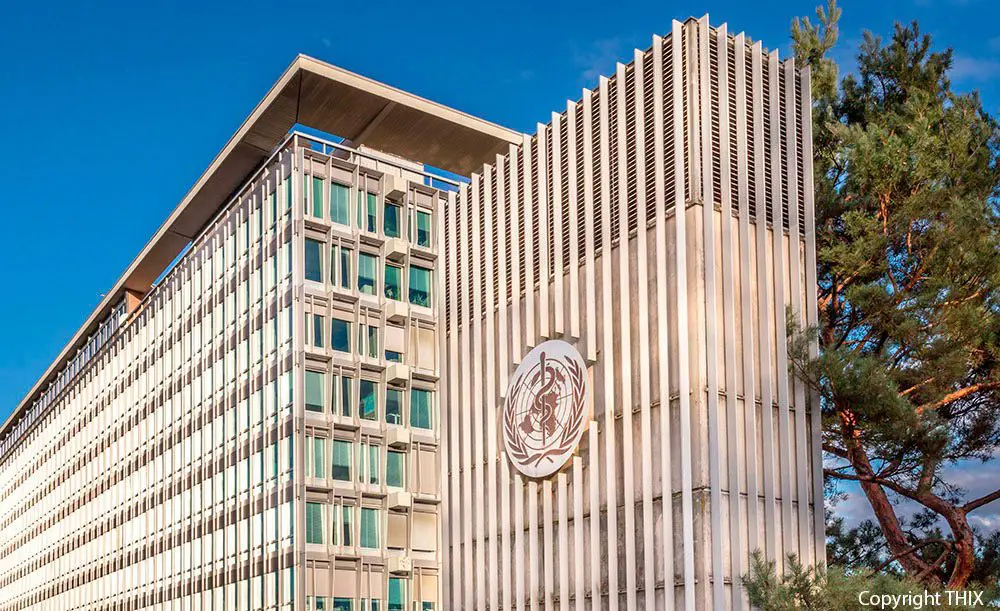Statement by Dr Hans Henri P. Kluge, WHO Regional Director for Europe
10 June, 2021
To date in the European Region, we have 55 million confirmed cases of COVID-19, and 1.2 million deaths. That’s 32% of cases reported globally, and 31% of all deaths.
Overall, for 2 consecutive months we have seen a decline in terms of cases, hospitalizations and deaths. A total of 368 000 new cases were reported last week – a fifth of the weekly cases reported during Europe’s recent peak in April this year. For the first time since last autumn, new deaths dipped below 10 000 last week.
As of this week, some 36 countries out of 53, are easing restrictions due to declining COVID-19 cases. Whilst we should all recognize the progress made across most countries in the Region, we must also acknowledge that we are by no means out of danger.
With increasing social gatherings, greater population mobility, and large festivals and sports tournaments taking place in the coming days and weeks, WHO/Europe calls for caution.
COVID-19 notification rates across the Region show that widespread community transmission continues; the new Delta variant of concern, which shows increased transmissibility and some immune escape, is poised to take hold, while many among vulnerable populations above the age of 60 remain unprotected.
We have been here before.
Over the course of last summer, cases gradually rose in younger age groups, then moved into older age groups, contributing to a devastating resurgence, lockdowns and loss of life in the autumn and winter of 2020.
Let’s not make that mistake again.
Today, WHO/Europe is launching a campaign, together with UNICEF Europe and Central Asia, to encourage everyone to exercise caution, reduce risks and keep safe from COVID-19, while enjoying the summer.
If you choose to travel, do it responsibly. Be conscious of the risks. Apply common sense and don’t jeopardize hard-earned gains. Remember – wash your hands frequently, keep a distance, choose open settings and wear a mask. Avoid the three Cs – settings that are closed, confined or crowded will put you at higher risk.
As vaccination coverage increases, we need to stick firmly to protective measures to suppress the virus. This needs to happen, even as cases decline. A combination of public health measures and vaccination – not one or the other – is the way out of this pandemic.
Just as in 2020, cases have declined as we enter the summer period, but it is no time to cut down on the public health response to COVID-19.
If we are to avoid another resurgence after the summer, we have to take last year’s lessons on board: act fast on signals of increasing cases – expanding testing and sequencing; step up contact tracing; and rapidly attain very high vaccine uptake in the most vulnerable populations.
By doing so, we save lives and livelihoods and bring the pandemic to an end sooner.
In 6 months, more than 400 million doses of COVID-19 vaccines have been administered in the Region. This summer, vaccination needs to happen at a much faster pace. As of today, 30% of people in the Region have received at least one vaccine dose and 17% have completed their series.
Although we’ve come far, we haven’t come far enough.
Vaccination coverage is far from sufficient to protect the Region from a resurgence. The distance to go before reaching at least 80% coverage of the adult population, is still considerable.
We should also remember that being vaccinated does not automatically stop us from becoming ill or spreading the virus. Vaccination does, however, reduce the chance of becoming seriously sick or dying from COVID-19. I therefore urge you to get vaccinated when it is your turn.
Our understanding of the safety and efficacy of vaccines amongst adolescents and children, continues to evolve. For sure, children can be transmitters of COVID-19. However, their risk of severe disease or death is up to 800 times lower than someone who is aged 70 years or more. Our urgent priority should therefore continue to be to protect the elderly, people with comorbidities and our frontline workers. These groups remain unprotected in a number of countries in the Region.
Protecting vulnerable groups to minimize deaths, alleviate the pandemic’s impact and suppress the virus, hinges upon equitable vaccine access. We all have a role to play – keeping everyone safe is everyone’s responsibility.
In closing, once again I call for leadership across the Region to commit, above and beyond words, through action, to pan-European solidarity.
Thank you.







